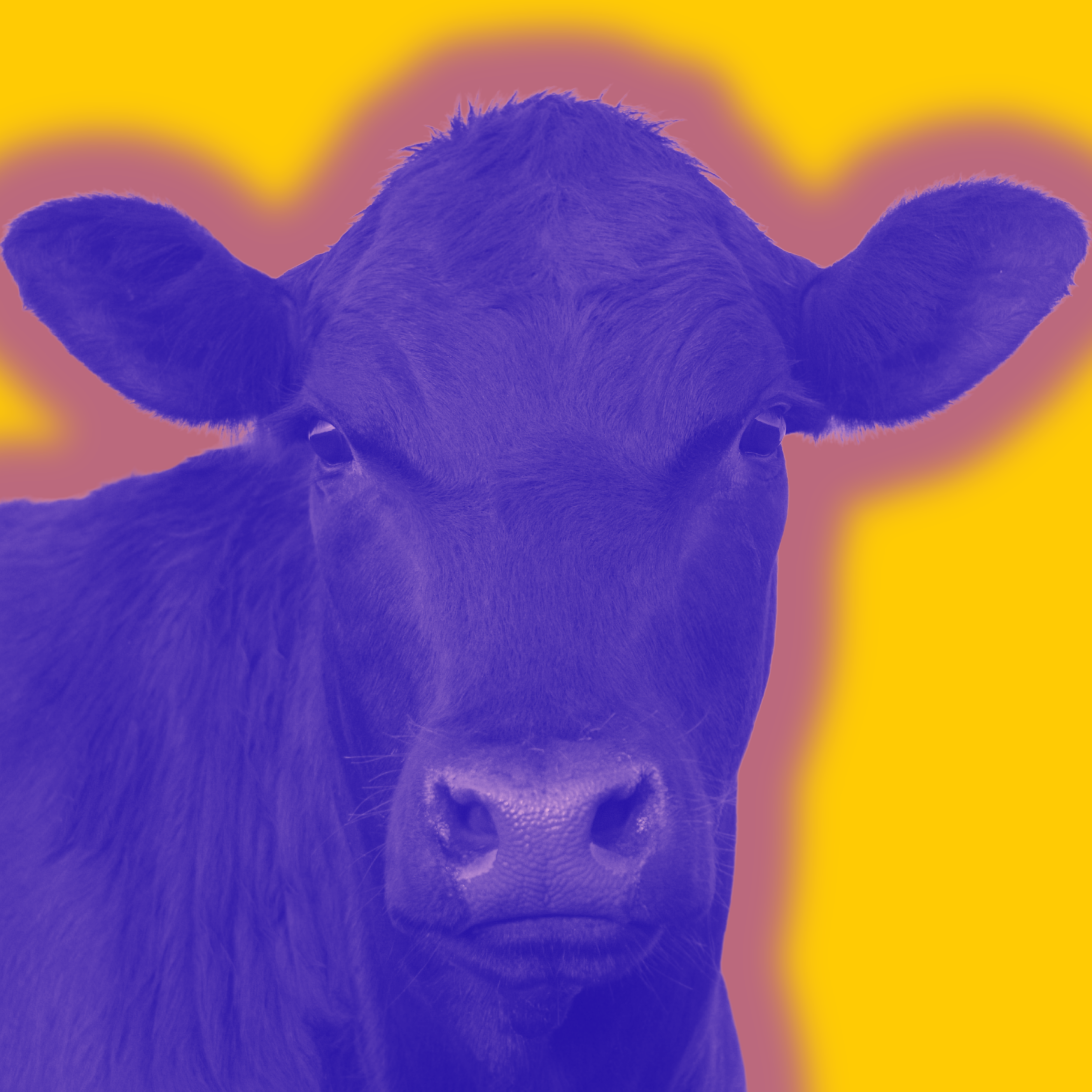Episode 6: Redefining Yield Prices with Dale Woerner
Dr. Woerner breaks down how outdated grading systems and the industry’s reluctance to adopt new technologies like X-ray vision are costing producers dearly.
In this episode, host Jim Johnson, alongside co-hosts Dr. Jessica Sperber and Ian Wheal, welcomes Dr. Dale Woerner—a leading meat science researcher at Texas Tech University—for a candid discussion on one of the most overlooked yet pivotal issues in the beef industry: carcass yield accuracy.
From heavier cattle not translating to higher red meat yields, to the critical gaps in how we measure carcass value, this episode reveals how the right data can transform not just pricing—but profitability.
What You’ll Learn:
- Why current yield assessments are "grossly inaccurate" and hurting producers.
- How fatter cattle don't always mean more red meat—and what that means for the bottom line.
- The role of advanced imaging and data in creating a more equitable beef supply chain.
Don't miss an episode!
Sign up to receive the latest episodes when they come out!
Meet your Hosts
%20SQUARE.png?width=1080&height=1080&name=FOB%20intro%20video%20(short%20no%20music)%20SQUARE.png)
Jim Johnson is the creator and host of the Brands and Barbed Wire podcast, one of the most listened to beef cattle podcasts in the world.
Jim with his beautiful wife Martha also enjoy a small but successful purebred Charolais herd named JMAR Genetics, in beautiful, historic Appomattox, VA.
Jim began his professional career with the VA Cattlemen’s Association where he was active in marketing over 1 million head of feeder cattle.
He then moved into the field where he’s most passionate, beef cattle genetics and for the last 21 years has worked to help cattlemen improve their genetics and profitability with DNA technology.

Ian Wheal is the CEO and Founder of Breedr and sits on the board of the Global Round Table for Sustainable Beef (GRSB).
Based in Texas, Ian is focused on building producer-led supply chains that are based on genomic, data and carcass feedback to rapidly optimize quality and consistency.
For the past 20 years, Ian has worked in agriculture, technology, data, and business development, with a particular focus on supply chains and technology. Ian was raised on a cattle and sheep farm in Australia, where he received a BEng and BSc in Computer Science, followed by an MBA from London Business School.

Dr. Jessica Sperber was raised on her family’s 4th generation cow-calf and grain operation located in central Alberta.
Jessica attained her BS from MacEwan University in Alberta, master’s degree from West Texas A&M University specialized in meat science, and Ph.D. in feedlot nutrition from the University of Nebraska-Lincoln.
Upon completion of her Ph.D., Jessica moved to her home Province of Alberta, where she worked in industry as a feedlot nutrition consultant and technical specialist. Jessica joined the Department of Animal Science at the University of Nebraska-Lincoln in November of 2022 as an Assistant Professor and Feedlot Extension Specialist.
Her areas of interest include nutritional management strategies in feedlot production, technologies that improve feeder cattle efficiency, and carcass changes over the feeding period.
Trial Breedr's award-winning cattle app - free
Discover how easy it is to track of your inventory, tasks, breeding, meds with a 1 month free trial of the award-winning Breedr cattle management app.

Calculate your profit potential
Get a free, personalized report outlining the potential profit - and key areas for improvement - for your operation.
Sponsors

Drovers
Drovers is a leading U.S. media brand dedicated to serving the beef cattle industry. Established in 1873 as the Chicago Daily Drovers Journal, it is recognized as the nation's oldest livestock publication. Today, Drovers operates as a monthly magazine and digital platform under Farm Journal Media, based in Lenexa, Kansas .
They offer comprehensive coverage of the beef industry, including market trends, production insights, policy developments, and expert commentary. Its content spans various topics such as beef production, veterinary practices, ag policy, and cattle markets, providing valuable information to cattle producers, veterinarians, and industry stakeholders.

Breedr
Breedr’s mission is to build the connected beef supply chains of the future, delivering premium beef that benefits producers, consumers, and the planet.
Founded to revolutionize the beef supply chain, Breedr’s easy-to-use app connects every production stage with real-time data, empowering producers to track and optimize each animal's genetic potential from embryo to finished product.
Through advanced genetics, genomics, and AI tools, Breedr enables producers to create healthier herds, increase market competitiveness, and reduce environmental impact.
Frequently asked questions
Why is beef carcass yield grading considered inaccurate?
Beef carcass yield grading is often based on outdated visual assessments that don’t accurately reflect the red meat yield. As cattle have become heavier and fatter, the disconnect between live weight and usable lean meat has widened—leading to yield grades that misrepresent carcass value and penalize producers optimizing for real performance.
How does excess fat reduce beef profitability?
Excess fat adds carcass weight but reduces red meat yield. Processors must trim and discard it, increasing waste and lowering value. This misalignment between weight and usable product means producers may be rewarded for fat, not muscle—ultimately reducing profitability across the supply chain.
What technologies exist to improve carcass grading accuracy?
Advanced tools like x-ray imaging, dual-energy technology, and digital carcass cameras can objectively measure muscle, fat, and bone in real time. These technologies offer data-rich insights that far surpass traditional visual grading, helping better align pricing with actual carcass value.
What is the impact of beef-on-dairy crossbreeding on carcass quality?
Beef-on-dairy cattle tend to be leaner, more uniform, and efficient. However, without careful genetic selection, they may lack marbling or optimal muscling. The episode highlights that while these crosses offer opportunity, they require new evaluation tools and standards to unlock their full value.
How can producers get paid more fairly for high-quality cattle?
To get paid fairly, producers need systems that reward muscle, marbling, and red meat yield—not just live weight or visual grades. Dr. Woerner advocates for adopting objective measurement tools and data feedback loops that tie carcass results back to individual animal management.
Why is aligning incentives across the beef supply chain important?
When every segment—producer, feeder, packer, retailer—uses different metrics for value, inefficiencies arise. The episode emphasizes the need for a connected supply chain using shared data and transparent standards to ensure that quality and performance are rewarded at every stage.
What are the benefits of using technology in meat science and grading?
Technology enhances consistency, reduces subjectivity, and allows for real-time decision-making. It also helps build consumer trust by improving eating quality and traceability. When applied correctly, these tools can raise both product quality and profitability.
What role does Breedr play in improving beef production outcomes?
Breedr enables producers and supply chain partners to capture and analyze key performance data from birth to box. In the episode, co-founder Ian Will explains how Breedr’s tools support data-led decisions that lead to more consistent, profitable cattle—and better collaboration across the chain.
Who is Dr. Dale Woerner and why should I listen to him?
Dr. Woerner is a professor at Texas Tech University and a leading expert in meat science, carcass composition, and beef quality. His work helps define how carcass traits translate into value, and he is a vocal advocate for using better tools to modernize the beef industry.
Where can I watch or listen to this episode of The Future of Beef Show?
You can watch the full episode featuring Dr. Dale Woerner on our website [Insert link], or listen on your favorite podcast platform. This episode is packed with actionable insights for producers, feeders, packers, and retailers looking to thrive in the modern beef industry.
%20(3).png?width=1000&height=600&name=Future%20of%20Beef%20logo%20(1000%20x%20600%20px)%20(3).png)














